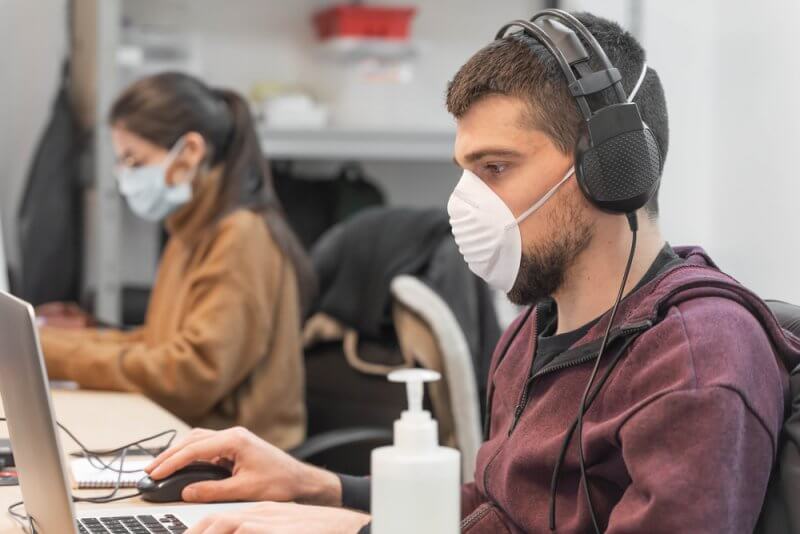
It is true when people say that the world will never be the same again after the COVID-19 pandemic. This situation has showed how vulnerable we are and made us reconsider our values, as well as review our habits and attitude towards many things, with the first being work.
Almost the whole world has switched to the remote work, which has never been done before and has significantly changed people’s interpretation of their daily work routines. A common stereotype that is seen in many cultures that you can only work effectively by being in office has been broken. At the same time, people are wanting to go back to their offices as they feel the need for social interaction, which is of course the basis of every relationship.
While some countries have already started to ease self-isolation restrictions, businesses face an important question of being able to transition work back to the office. For instance, how can they make sure it safe as well as comfortable for employees? There are two essential points organisations need to consider: the human side of the question and the organisational one.

Going back to (new) normal
As many countries relax the quarantine measures, businesses are starting to reopen, and more people will be coming back to offices in the coming months. We have already seen that many people at Kaspersky are eager to come back to the office, to finally see their colleagues and get back to their normal lives. However, while the coronavirus is still with us, the question around employees’ safety goes first. In fact, we will all have to find the right balance between our desire to go back to our normal daily routines and feeling safe. At Kaspersky, we regularly run surveys to understand the emotional state of our employees, their workload, if they have everything they need for remote working, and if they have clarity on the business processes. In addition, in one of the latest surveys we asked employees how eager they feel about going back to the office and how comfortable they are with this idea, and also what are their major concerns regarding this process. This gives us a better understanding about specific circumstances people are in today and helps us to make decisions that are more balanced.
It is important to understand that this transition should be as comfortable for people as possible as their well-being is essential if the transition is going to go smoothly. These past few months of remote working have made us more human and kinder towards each other. We have become much closer as we have learned to talk openly not only about our work but also about some personal issues we face now. A connection we now have will help us in the coming months, as we will be going back gradually to our new reality.
Risks and values
When considering coming back to work in the office, companies today need to weigh up the potential risks against the benefits. To avoid the risks of people becoming sick, and possible liability risks connected with any illness, companies today need to implement a complex set of measures.
Companies should consider the worst-case scenario if, for example, there are 400 people in an office and one of them tests positive for COVID-19. They will need to think about what measures should be taken to ensure that other people are safe and what will be the price of these measures for the company. If there are more risks than values from coming back to the office and if there’s an opportunity to continue remote working for the coming months, then this would probably be the best option.
We all want to return to normal life as soon as possible, but in the current situation when we don’t have immunity to protect us from the virus and don’t have a vaccine, we need to be very careful and take care about the most valuable resource we have – our employees.
People will still value working from an office, but what they will appreciate most is flexibility. People have learned how to share their time more effectively between how they work and their personal and moving to flexible working hours will be a key benefit for organisations to stay competitive within the market.





